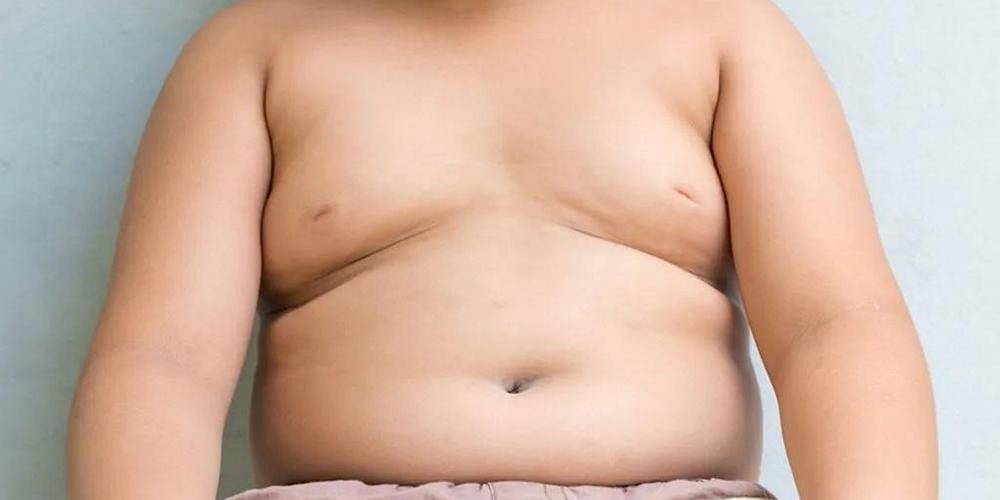Men's Health
Male Enhancement, How to Get an Erection, Increase Sperm Volume, Penis Enlargement, Premature Ejaculation, ...All Men's Health Men's Health
Women's Health
Breast Enhancement, Female Libido Enhancement, Female Sexual Arousal, ...All Women's Health Women's Health
Acne & Skin Care
Acne Treatment, Boils Treatment, Rosacea Treatment, Skin Pigmentation, Stretch Marks, Varicose Veins, ...All Acne & Skin Care Acne & Skin Care
Digestive & Urinary Systems
Constipation, Diarrhea, Hemorrhoid, Irritable Bowel Syndrome, Sensitive Digestion, ...All Digestive & Urinary Systems Digestive & Urinary Systems
Weight Loss
Blocking Carbs and Fat, Body Detoxification, Boost Metabolism, Fat Burning, Increase Energy Levels, Obesity Treatment, Suppressing AppetiteSports and Fitness
Improve Sports Performance, Increase Endurance, Increase Strength, Muscle Building Supplements, Muscle Recovery, Weight Gainers, Workout IntensityMental Health & Neurology
Anxiety, Bad Mood, Chronic Fatigue Syndrome, Depression, Insomnia, Memory Loss, Neuropathy, Obsessive-Compulsive Disorder, Stress, ...All Mental Health & Neurology Mental Health & Neurology
Beauty & Well-being
Bad Breath, Brittle Nails, Eyelash Growth, Gray Hair, Hair Removal, Nail Fungus, Teeth Whitening, Tattoo RemovalAdd to Bookmarks
How to Identify and Prevent the Causes of Childhood Obesity?
 Childhood obesity can be seen predominately in many nations around the world. In countries where people have an abundance of local and imported food sources, childhood obesity can be seen as an epidemic.
Childhood obesity can be seen predominately in many nations around the world. In countries where people have an abundance of local and imported food sources, childhood obesity can be seen as an epidemic.What are the causes of childhood obesity? Why are developed nations so prone to having high numbers of overweight children? According to the CDC, childhood obesity rates have quadrupled in past 3 decades. If we can understand what some of the underlying causes of this complex problem, we may be able to lower obesity rates and prevent adverse health effects related to obesity in children.
Introduction to Childhood Obesity
Childhood obesity has emerged as a significant public health issue over recent decades, with far-reaching implications for both immediate and long-term health. Defined as having an excessive amount of body fat, obesity in children is typically measured using the Body Mass Index (BMI), which compares a child's weight to their height. When a child's BMI falls in the 95th percentile or higher for their age and sex, they are considered obese.Understanding the causes of childhood obesity is crucial for developing effective prevention and intervention strategies. Obesity during childhood not only increases the risk of developing serious health conditions, such as type 2 diabetes, heart disease, and certain types of cancer, but it can also lead to psychological issues including low self-esteem and depression. The problem extends beyond physical health, influencing overall quality of life and future prospects.

According to Boston Children's Hospital:
The causes of childhood obesity are multifaceted and complex, involving a combination of genetic, behavioral, environmental, and societal factors. It's not solely a result of overeating or lack of physical activity; rather, it's a result of an interplay of various elements that contribute to an energy imbalance, where the number of calories consumed exceeds the number of calories burned.
Health Problems
We all know that there are many health risks related to being overweight. Modern scientists and biologists agree across the board that being overweight comes with a laundry list of negative health consequences. Health problems associated include:- Heart disease and stroke
- Diabetes
- Cancer
- Gall Bladder disease and gallstones
- Hypertension
- Gout
- Lung problems
- Joint problems due to being overweight
- Sleep apnea
- Depression
- And many more health problems
Main Causes of Childhood Obesity
There are many risk factors that seem to come from all sides, usually at least one of these factors is present in cases of childhood obesity. The following all increase risk of become overweight:- Poor Diet - The regular consumptions of food that contains a high calorie count and little nutritional value such as over processed vending machine snacks, fast food and candy all contribute to obesity. An unbalanced diet can also increase risk.
- Lack of Activity - Even if a child's diet isn't too terrible, lack of exercise can help cause them to become overweight.
- Genetics - Some people tend to store more fat than others and retain weight easier. But this still doesn't cause obesity. In countries where children don't have access to an abundance of food, there is virtually no cases of obesity except in rare genetic abnormalities.
- Habits - Lifestyle habits are the number one factor that cause people to be overweight. Promoting habits such as eating fatty foods to excess and lack of exercise can be curbed to fight obesity. Many times overeating is a psychological issue that a child develops to learn to cope with stress.
- Socioeconomic Status - Certain communities are limited in what foods are readily available. People of lower economic status have been shown be more likely to eat over processed foods such as frozen meals, crackers and cookies. People who live in very low income neighborhoods may be at the mercy of whatever kinds of foods government assistance can help them obtain, which usually isn't the healthiest option.
Genetic Factors
Genetic factors play a significant role in the development of childhood obesity, influencing how a child's body processes and stores fat. While genetics alone are not responsible for obesity, they can predispose children to gain weight more easily when combined with environmental and behavioral factors.Research has shown that genes can affect various aspects of body weight regulation, including appetite, metabolism, and fat distribution. For example, certain genetic variants can influence how a child feels hunger and satiety, potentially leading to increased food intake. Other genes may impact how the body metabolizes fats and sugars, affecting how efficiently calories are burned or stored.
One well-known gene associated with obesity is the FTO (fat mass and obesity-associated) gene. Variants of this gene have been linked to a higher risk of obesity, particularly in individuals who have an increased appetite and are more likely to consume high-calorie foods. Studies have also identified genes that affect insulin sensitivity and fat storage, which can contribute to weight gain.
Dietary Habits
Dietary habits are a major contributor to childhood obesity, significantly impacting a child's weight and overall health. Consuming a diet high in calories, particularly from sugary drinks, fast food, and processed snacks, can lead to excessive weight gain. These foods are often low in essential nutrients but high in fats, sugars, and salts, which can disrupt normal metabolism and lead to overeating.Portion sizes also play a critical role. Larger portions encourage children to eat more than they need, leading to an excess of calories. Inadequate consumption of fruits, vegetables, and whole grains further exacerbates the problem, as these nutrient-dense foods are crucial for maintaining a healthy weight and overall well-being.
Additionally, skipping meals, especially breakfast, can lead to overeating later in the day as children may experience increased hunger and cravings. Establishing regular meal times and promoting balanced, nutritious meals can help regulate appetite and prevent excessive calorie intake.
Physical Activity Levels
Physical activity is crucial for maintaining a healthy weight and preventing childhood obesity. Regular exercise helps to balance the number of calories consumed with the number of calories burned, which is essential for weight management. When children engage in physical activities, they not only burn calories but also build muscle, enhance metabolism, and improve overall fitness.Unfortunately, many children today lead increasingly sedentary lifestyles, spending excessive amounts of time on screens - whether it's watching TV, playing video games, or using smartphones and tablets. This lack of physical activity contributes significantly to weight gain and obesity. The recommended amount of physical activity for children is at least 60 minutes of moderate to vigorous exercise each day. Activities like playing sports, biking, swimming, and even simple activities like walking or running around the park can help meet this goal.
Encouraging children to be more active involves creating opportunities for physical play and integrating exercise into daily routines. Schools, families, and communities play a key role in providing environments that support and promote active lifestyles. By prioritizing physical activity and reducing screen time, we can help prevent childhood obesity and support healthier, more active children.
Family Environment and Parenting
The family environment and parenting practices significantly influence a child's risk of obesity. The way families approach eating, physical activity, and lifestyle can shape a child's habits and attitudes towards health.For instance, family mealtimes are a crucial opportunity for promoting healthy eating. Children who eat meals with their families are more likely to consume balanced diets, as family meals often include fruits, vegetables, and whole grains. Conversely, irregular mealtimes or frequent fast food consumption can contribute to unhealthy eating patterns.
Parenting styles also impact obesity risk. Authoritative parenting, which balances support with structure, encourages healthy behaviors such as regular physical activity and nutritious eating. In contrast, permissive or neglectful parenting may lead to less supervision over dietary choices and physical activity, increasing the likelihood of obesity.
Socioeconomic Factors
Socioeconomic factors play a significant role in childhood obesity, influencing both access to healthy foods and opportunities for physical activity. Families with lower socioeconomic status often face barriers that can contribute to weight gain in children. For example, limited financial resources may restrict access to fresh, nutritious foods, making processed and calorie-dense options more appealing due to their lower cost and longer shelf life.Additionally, neighborhoods with fewer resources may lack safe recreational spaces and facilities, which can limit opportunities for children to engage in physical activities. In such environments, children may be more likely to lead sedentary lifestyles, contributing to weight gain.
Economic constraints can also impact education and awareness about healthy eating and exercise. Families with lower incomes might have less access to information or programs promoting healthy lifestyles, further perpetuating unhealthy habits.
Psychological and Emotional Factors
Psychological and emotional factors can significantly influence childhood obesity, affecting both eating behaviors and physical activity levels. Stress, anxiety, and depression can lead to emotional eating, where children consume high-calorie, comfort foods as a way to cope with their feelings. This type of eating often results in excessive calorie intake and weight gain.Furthermore, children experiencing emotional distress may have reduced motivation for physical activity. Depression and anxiety can lead to lethargy and a lack of interest in participating in sports or other forms of exercise. This sedentary behavior can exacerbate weight gain and contribute to obesity.
Self-esteem and body image also play a role. Children with low self-esteem may turn to food as a way to self-soothe or may avoid physical activities due to feelings of inadequacy. This creates a cycle where emotional issues contribute to weight gain, which in turn affects self-esteem and overall mental health.
Media and Technology Influence
Media and technology have a profound impact on childhood obesity, shaping behaviors and lifestyles that contribute to weight gain. Increased screen time, including watching TV, playing video games, and using smartphones and tablets, is closely linked to sedentary behavior. Children who spend more time in front of screens are less likely to engage in physical activities and more likely to snack on unhealthy foods, often marketed through these media channels.The influence of media extends beyond screen time. Advertising for high-calorie, low-nutrient foods can affect children's eating habits, leading them to crave and consume more unhealthy snacks and sugary drinks. This exposure often undermines efforts to promote healthy eating and can contribute to obesity.
How to Prevent Childhood Obesity
This may be more than just a case of uneducated consumers. It's obvious that foods that are high in certain types of fats and a diet containing too much sugar or salt can lead to serious health problems. Still though people continue to become overweight at alarming rates.There tends to be large numbers of overweight children popping up, and there is no shortage of consumers to drive companies that produce foods and encourage unhealthy lifestyle habits known to cause obesity.
This can be curbed by education as well as responsible entrepreneurs who look to change the fabric of society for the better. Many companies just appeal to the consumer, instead of trying to educate people on alternative, healthier choices.

According to University of San Diego:
By integrating sports into a child's lifestyle, we can help prevent obesity and promote a healthy, active way of living. Ensuring that physical activity is fun and enjoyable will encourage lifelong habits that contribute to overall well-being.
- Promote Healthy Eating Habits: Encourage a balanced diet rich in fruits, vegetables, whole grains, and lean proteins. Limit the intake of sugary drinks, fast food, and high-calorie snacks. Involve children in meal planning and preparation to help them develop an interest in healthy eating. Family meals should be regular, nutritious, and free from distractions like TV or smartphones.
- Increase Physical Activity: Ensure that children engage in at least 60 minutes of moderate to vigorous physical activity each day. This can include activities like biking, swimming, playing sports, or even active play in the park. Encourage outdoor activities and limit sedentary screen time to promote a more active lifestyle.
- Create a Supportive Family Environment: Foster a healthy home environment by setting positive examples. Parents should model healthy eating and physical activity behaviors. Establishing routines, such as family walks or cooking together, can reinforce these habits. Providing emotional support and avoiding negative reinforcement related to weight is crucial.
- Educate and Empower: Educate children about the benefits of healthy eating and physical activity. Use age-appropriate resources and discussions to help them understand why these habits are important. Encourage self-monitoring and goal setting to empower children in their health choices.
- Ensure Adequate Sleep: Adequate sleep is vital for maintaining a healthy weight. Ensure that children get the recommended amount of sleep for their age group, as poor sleep can disrupt metabolism and increase the risk of obesity.
- Monitor Growth and Weight: Regularly track your child's growth and weight. Early identification of weight issues allows for timely intervention and support. Consult with healthcare professionals for personalized advice and guidance.
Natural Obesity Treatment Pills: Safe for Adults, Not Suitable for Kids
Natural obesity treatment pills have gained popularity among adults seeking to manage their weight through supplements derived from herbal or organic sources. These products often boast benefits such as boosting metabolism, reducing appetite, or enhancing fat burning. However, it's crucial to understand that these supplements, while potentially effective for adults, are not suitable for children and should be approached with caution.For adults, natural obesity treatment pills may offer a supplementary approach to weight management. Ingredients such as green tea extract, garcinia cambogia, and glucomannan are commonly found in these supplements and have been studied for their potential benefits in weight loss. They can support weight management when used in conjunction with a balanced diet and regular exercise. Nonetheless, it is essential for adults to consult with healthcare professionals before starting any supplement regimen, as even natural products can have side effects or interact with other medications.

According to WebMD:
It is generally safer and more effective for kids to focus on lifestyle changes, such as promoting a balanced diet and regular physical activity, rather than relying on weight loss supplements or pills. If there are concerns about weight or health, consulting a healthcare professional for personalized advice is the best approach.
- Lack of Research: There is insufficient research on the safety and efficacy of these supplements in pediatric populations. What is safe for adults may not be appropriate or safe for children.
- Potential Side Effects: Children's bodies may react differently to these supplements, and the potential side effects could be more pronounced.
- Nutritional Needs: Children require balanced nutrition for growth and development, and relying on supplements might interfere with their overall dietary intake.
- Underlying Health Issues: Obesity in children can be linked to various underlying health issues or genetic factors that need to be addressed through comprehensive medical and lifestyle interventions rather than supplements.
Featured Obesity Treatment Pills for Adults
Want to manage obesity naturally? Discover proven strategies that promote healthy weight loss without relying on harsh diets or medications. Explore natural approaches to treat obesity and improve your overall health.Learn How to Treat Obesity Naturally
Related Articles
Appetite Suppressants for Weight Loss
When you're trying to lose weight, snacking and overeating are your enemy, but many people find it hard to resist the urge to eat often or too much. Appetite can seriously undermine efforts to burn body fat. One of the best ways to control appetite is with natural appetite suppressants for weight loss, dietary supplements that reduce your psychological desire to eat.
Weight Loss Metabolism: Human Growth Hormone
Today virtually every commodity on TV or magazine articles are related weight loss theme. Often it may even be ridiculous and absurd. Many of such products do not give the promised results, and most of them are just failures. The reason for it is that these products are trying to achieve the result the wrong way. Many people don't know that the most important role in staying fit or fat is played by human growth hormones. These hormones fight fat cells and improve natural weight loss metabolism.
How to Block Carbohydrate Absorption?
Many studies show that cutting on your carbohydrate intake is the best way to reduce your body weight. In addition to the low-carb diet, some supplements - carbohydrate absorption blockers are also available in the market. Many people rely on these carbohydrate absorption blockers for getting better and faster results.
Last Updated: 2025-11-14



